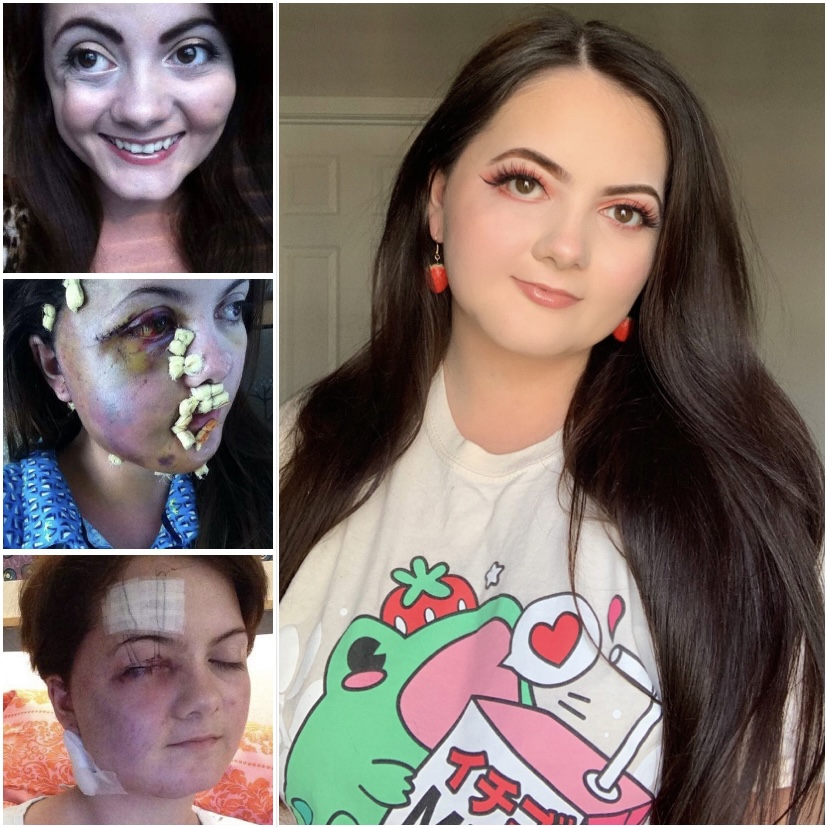The story of Hannah
Hello! My name is Hannah. I’m a twenty-four year old Marshall University and West Virginia University Hospitals alumni currently working in my career as a radiation therapist in Morgantown, WV. This is my story about my rare disease.
Eight years ago, when I was sixteen, I was diagnosed with Parry-Romberg Syndrome – following years of searching for answers. Parry-Romberg Syndrome (PRS) is a rare, incurable disease characterized by the progressive deterioration of one or both halves of the face. In certain cases, PRS may also be accompanied by atrophy of the limbs, neurological involvement including seizures or brain lesions, dermatological abnormalities, and/or ocular abnormalities, amongst other related symptoms or disorders.
When I was a young teenager, I watched the right half of my face deteriorate before my eyes as doctors and other health professionals disregarded my symptoms. By the time I was diagnosed years later, the damage was extensive both physically and mentally. Following my diagnosis, I underwent a variety of surgeries to correct the damage to my face and attempt to halt the progression of the atrophy. Initially, I had a microvascular free flap surgery which involved transplanting tissue from my back to the affected side of my face to aid in restoration as well as restoring vasculature. I underwent two more surgeries after that to further revise the transplanted tissue as well as correct other anomalies. I had developed ptosis due to my syndrome which was corrected in my last surgery. In order to further restore the damage to my right eye, my surgeon transplanted tissue from my roof my mouth into my eyelid. The surgeries have been extensive, but life changing.
After my diagnosis, I quickly took to social media to begin spreading awareness regarding Parry-Romberg Syndrome. All I could think about was how long it took for me to get my diagnosis, and how I didn’t want others out there searching for answers to continue waiting. Through this, I also connected with many other individuals who share in my diagnosis, who had already been sharing their stories for years. I’ve found that being in a community of people who personally know what you’re going through is so important because it oftentimes feels like others just cannot understand. Though there is no cure for PRS, and I will continue to feel the effects of this syndrome both physically and mentally for the rest of my life, I am grateful for the opportunity to share my story and potentially inspire progression in the research regarding rare diseases.
